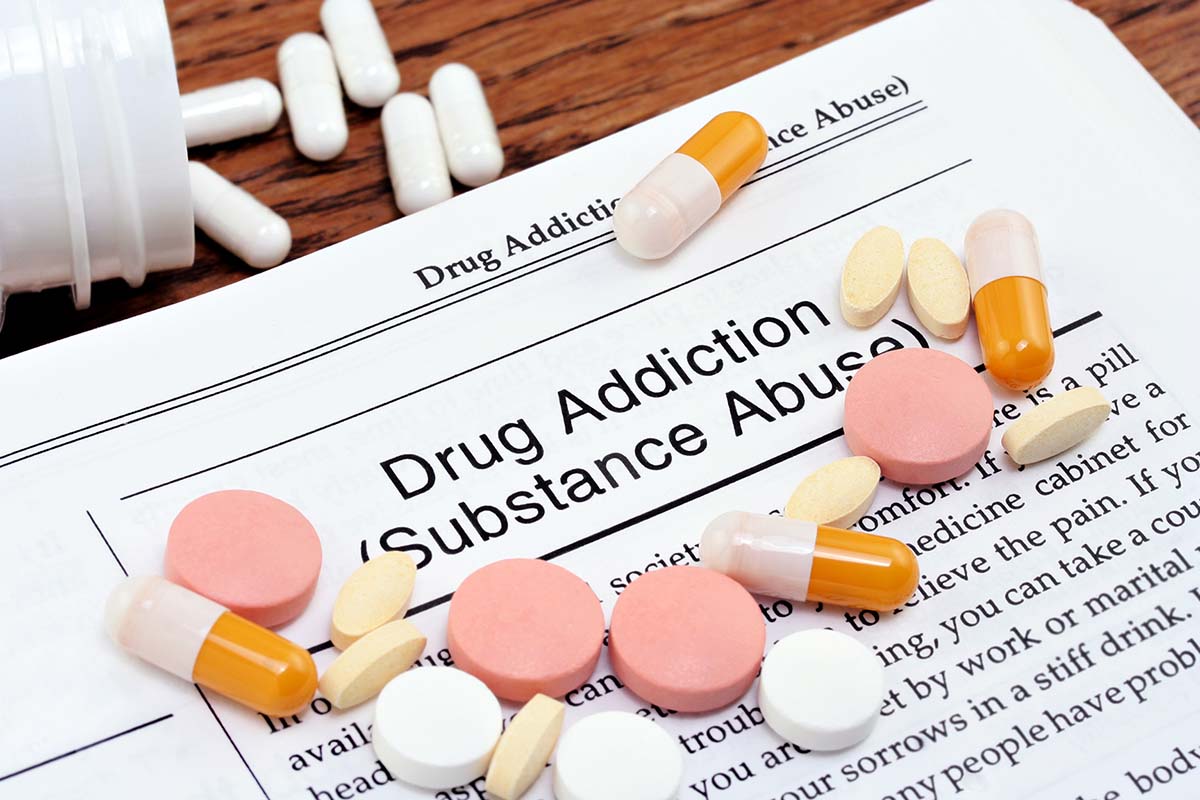Explore specialized techniques offered by dual diagnosis rehab NJ centers
Wiki Article
A Comprehensive Overview to Substance Abuse Rehabilitation
Substance Abuse rehabilitation, usually referred to as rehabilitation, is an organized process made to help people get over dependence on medications, alcohol, or various other addictive compounds. It is not just about detoxing-- it is a trip of mental, emotional, and physical improvement. Rehabilitation facilities provide risk-free settings where people can confront the root triggers of their addiction, address psychological triggers, and learn coping systems to receive lasting soberness. This process is assisted by trained specialists, consisting of specialists, medical physicians, and counselors that recognize the intricate nature of addiction as both a physiological and behavior problem.Recognizing the Core important Abuse Recovery
At its core, recovery has to do with reconstructing an individual's life. Dependency usually leaves deep marks-- stretched partnerships, economic distress, illness, and psychological instability. Via detailed rehabilitation programs, individuals are provided the devices to repair these aspects gradually. Rehab isn't almost avoiding compounds; it has to do with recovering control and uncovering one's sense of self-worth. The programs emphasize framework, uniformity, and personal accountability, which are key to lasting recuperation success. Every little milestone during rehabilitation functions as a foundation for lasting soberness.Substance Abuse Abuse rehabilitation is not a one-size-fits-all strategy. It identifies that everyone's addiction tale is special-- what resulted in Substance Abuse abuse, exactly how it progressed, and just how healing can be continual vary widely. Consequently, treatment centers personalize care strategies based upon individual analyses, making sure that every client obtains support that straightens with their mental state, addiction history, and life scenarios. This individualized approach considerably improves healing end results and aids avoid regression once individuals rehabilitate into daily life.
The Advantages of Inpatient Rehab Programs
Inpatient rehab, likewise called property treatment, provides one of the most efficient methods for those battling serious Substance Abuse addiction. Among its key benefits is the organized and distraction-free atmosphere. When a person goes into an inpatient facility, they are momentarily gotten rid of from exterior triggers-- such as close friends that make use of compounds, difficult work environments, or family problems-- that may impede their healing. This isolation from unfavorable influences enables clients to focus entirely on recovery. Living within a encouraging and monitored setup produces the stability required to damage old routines and develop much healthier patterns of actions.An additional significant advantage of inpatient rehab is the 24/7 specialist guidance readily available to every client. Withdrawal symptoms from medicines or alcohol can be unforeseeable and, in some situations, dangerous. Inpatient facilities have medical teams that give continuous care, ensuring individuals are risk-free and comfy during detoxing. Beyond physical health, constant supervision additionally provides psychological peace of mind-- patients understand that help is offered at any time, which lowers stress and anxiety and develops count on in the recuperation process. This instant access to medical and emotional assistance substantially enhances the success rate contrasted to outpatient care for serious dependencies.
Inpatient rehabilitation programs foster a strong feeling of community and responsibility. People interact with others who share comparable battles, join team therapy, and engage in tasks that urge teamwork and empathy. This atmosphere supports common understanding and decreases feelings of seclusion frequently linked with dependency. By linking with peers and finding out from their experiences, individuals develop social bonds that proceed to sustain them even after leaving the facility. This feeling of belonging, integrated with constant professional guidance, makes inpatient rehabilitation a highly efficient structure for lasting recovery.
Inpatient Rehabilitation Providers Provided
Inpatient rehabilitation facilities supply a varied series of solutions made to treat the body, spirit, and mind at the same time. The initial stage usually includes medical detoxing, a process that safely gets rid of materials from the body while managing withdrawal signs. Detox is managed by doctor that may provide medication to relieve pain and stop issues. When detox is full, individuals change to organized everyday programs that include treatment, counseling, and wellness activities. This integrated strategy makes sure that clients not only get rid of physical dependence yet likewise address psychological and psychological elements of dependency.Restorative services are at the heart of inpatient rehabilitation. Facilities offer person therapy sessions, where people work individually with accredited specialists to discover the underlying root causes of their addiction-- such as injury, mental health and wellness disorders, or unsettled psychological pain. Cognitive-behavioral treatment (CBT), dialectical behavior modification (DBT), and inspirational interviewing are amongst one of the most common evidence-based approaches used. Additionally, group treatment sessions supply a supportive area for people to share experiences, gain perspective, and establish social abilities. Family members treatment is likewise frequently included, assisting to restore depend on and improve communication in between individuals and their enjoyed ones.
Beyond standard treatment, several inpatient programs consist of leisure and all natural solutions to advertise overall wellness - Inpatient rehab. Yoga exercise, reflection, art treatment, and fitness programs assist decrease anxiety and instruct mindfulness. Nutritional therapy makes sure that people restore physical wellness, as Substance Abuse often depletes the body's important nutrients. Some rehab centers even provide professional training and instructional workshops to aid individuals plan for reintegration right into society. These diverse services are developed to heal the whole individual-- not simply deal with dependency signs and symptoms-- by promoting purpose, balance, and durability
Why You Must Consider Outpatient Programs
While inpatient rehab offers a extensive and immersive technique, outpatient programs offer an alternative that permits versatility for people who can not commit to permanent property treatment. Outpatient rehabilitation makes it possible for people to obtain structured treatment and clinical support while keeping their everyday responsibilities-- such as institution, job, or household care. For lots of individuals with light to moderate dependency, outpatient treatment uses the perfect equilibrium in between healing and daily life. It enables clients to exercise the coping skills they discover in real-world environments, enhancing their strength when faced with everyday obstacles.Another factor to consider outpatient programs is their cost-effectiveness. Inpatient care can be pricey due to lodging, dishes, and 24-hour supervision, which might not be financially feasible for every person. Outpatient programs, nevertheless, normally cost much less due to the fact that they do not require property keeps. Numerous centers supply sliding-scale payment choices or approve insurance policy to make treatment easily accessible. For those that have currently finished inpatient rehabilitation, transitioning into an outpatient program serves as an important continuum of treatment, aiding keep liability and protect against relapse with continuous assistance.
In addition, outpatient programs supply a high level of customization. Patients can choose between partial hospitalization programs (PHP), intensive outpatient programs (IOP), or common outpatient treatment, relying on their degree of need. Each choice supplies varying degrees of structure and time dedication. As an example, IOPs typically involve several therapy sessions weekly, while basic outpatient care might include once a week therapy gos to. This versatility guarantees that clients can receive specialist aid customized to their healing stage, making outpatient programs a sensible and encouraging selection for long-lasting recovery upkeep.

Exploring Other Therapy Choices basically Abuse Recovery
Beyond inpatient and outpatient rehabilitation, there are several various other therapy alternatives readily available for people looking for healing from Substance Abuse dependency (substance abuse treatment Morris County). Medication-assisted treatment (FLOOR COVERING) is one such method, integrating recommended medications with behavioral treatment to take care of withdrawal signs and symptoms and minimize food cravings. Medicines like methadone, naltrexone, or buprenorphine are commonly utilized in opioid addiction therapy, while acamprosate or disulfiram might support alcohol recovery. Floor covering helps maintain mind chemistry, enabling individuals to concentrate on therapy and lifestyle adjustments without the frustrating pain of withdrawal
Alternate treatments are likewise becoming progressively popular in Substance Abuse Abuse therapy. These may consist of alternative techniques like acupuncture, equine treatment, adventure-based counseling, and spiritual recovery programs. While these methods might not change conventional treatment, they can complement it by boosting emotional guideline, self-awareness, and confidence. The goal of discovering different therapy choices is to develop a healing strategy that resonates with each individual's worths, beliefs, and way of life. A tailored combination of treatments commonly generates the most sustainable outcomes, encouraging individuals to live a satisfying, substance-free life.
The Course to Long-Term Sobriety and Healing
Finishing rehabilitation-- whether inpatient or outpatient-- is just the beginning of a lifelong recuperation journey. Aftercare programs play an important duty in maintaining sobriety and protecting against relapse. These programs click to read may include continuous treatment, assistance teams like Narcotics Anonymous or Alcoholics Anonymous, and sober living plans that supply ongoing framework. Uniformity and community are important; individuals that remain connected to healing networks are most likely to sustain long-lasting progression. Rehabilitation teaches the required coping skills, however aftercare ensures that those skills are applied and enhanced in real-life circumstances.Long-lasting healing likewise relies on way of living adjustments that sustain physical and psychological health. Developing healthy and balanced behaviors-- such as normal workout, well balanced nutrition, and mindfulness methods-- assists recover balance to the mind and body. Participating in deliberate tasks like volunteering, going after hobbies, or reconnecting with loved ones can fill the psychological gap left by Substance Abuse usage. Focusing and developing a favorable way of thinking on future objectives provide recovering individuals a restored sense of identity and instructions. Soberness is not regarding deprivation; it has to do with redeeming life's richness and opportunities.

Via thorough rehabilitation programs, individuals are given the devices to fix these elements slowly. Inpatient rehab programs cultivate a strong sense of area and responsibility. While inpatient rehab offers look at these guys an immersive and intensive technique, outpatient programs offer an alternative that permits versatility for individuals that can not commit to permanent property treatment. Outpatient rehabilitation allows individuals to receive organized therapy and clinical support while keeping their everyday responsibilities-- such as job, institution, or family members treatment. Beyond outpatient and inpatient rehab, there are a number of various other treatment alternatives available for people looking for recuperation from Substance Abuse addiction.
Report this wiki page